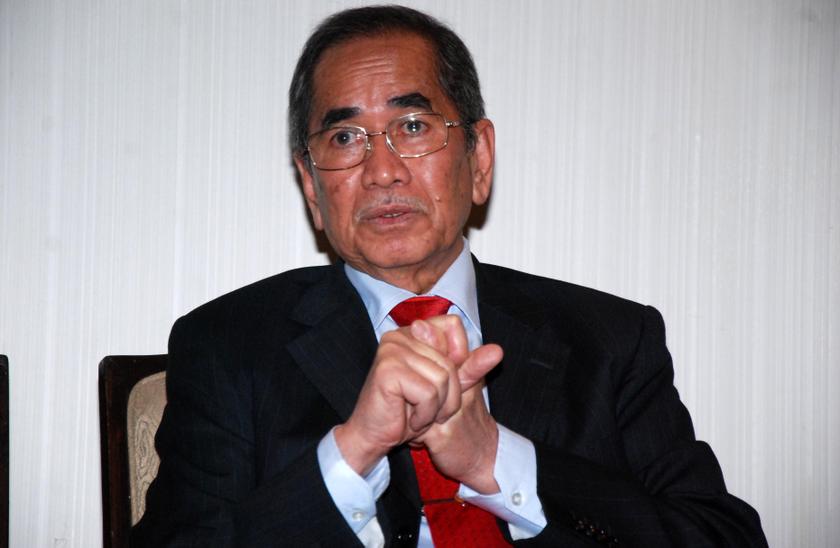PETALING JAYA, June 6 — Logging activities will only be carried out in designated saw milling resettlement areas by 2018, said Natural Resources and Environment Minister Datuk Seri Wan Junaidi Tuanku Jaafar.
He said the Forestry Department has been instructed to issue notices to state governments regarding the ruling. The state governments would then identify areas for the resettlement.
Under the ruling, companies would have to move their entire operations, including logging and saw milling, to the new areas.
“The move is necessary to reduce illegal logging of the forests,” he said in conjunction with World Environment Day yesterday.
Wan Junaidi also urged producers to maximise every log that was chopped and monitor the amount of logs used to make a particular product.
“Industry players should come up with various initiatives to produce as many items as they can with one particular log so that we do not need to chop many trees at once,” he said.
Wan Junaidi said the ministry is likely to conserve 20 hectares in Borneo.
“We are also looking at some parts of peninsula as well so that we would not have to lose our forest in the future,” he said.
The Independent reported Norway is the first country in the world that has committed to become deforestation-free after a committee of MPs recommended imposing regulations to ensure the state did “not contribute to deforestation of the rainforest”.
Norway has funded forest conservation projects worldwide and also supports human rights programmes for forest communities.
The committee also called for its government to protect biodiversity through stricter legislations and by investments made by Norges Bank Investment Management.
Wan Junaidi added dealing with state governments was the toughest part of his job.
“Getting them to work with the ministry is challenging as their main concern is to only boost their state of economy. They have to also bear in mind that they cannot simply chop down trees as they please,” he said.
Wan Junaidi said state governments should help the ministry enforce laws in their respective states.
“All states should enforce the laws strictly. They should also understand their responsibility to conserve the environment,” he said.
Wan Junaidi said industry players should have internal policies or regulations to help conserve the environment.
“They should have guidelines for their employees to follow and take firm action against them if they do not follow the drafted guidelines to help conserve the environment,” he said.
He said many still lacked knowledge when it comes to caring for the environment.
In pointing out the ministry could only do so much to protect the environment, he said Malaysians and state governments must shoulder the responsibility and be pro-active in ensuring Mother Earth is preserved.
“One person might just throw garbage out of their vehicle on the highway but what if 10,000 people do it? Won’t this destroy the environment by polluting it with rubbish? People cannot expect us to do it all. They have to help us conserve our environment,” he said.
Wan Junaidi said Malaysians should look at the environment holistically rather than just focus on one area such as the forests.
Wan Junaidi said most carbon discharge in the country originated from vehicles and the government was looking into various ways to reduce emissions.
“The government has come up with MRT lines and various campaigns to encourage Malaysians to take public transport. This will reduce carbon discharge,” he said.
Wan Junaidi said Malaysia would adopt a new technology to measure air particles in the air by next year.
“This new measurement will not only measure the Air Pollutant Index but it will also notify us if there are any other floating particles in the air,” he said.
The government’s plan to bring in higher grade fuel was to foster cleaner petrol usage which would lead to cleaner air to breathe.
“The prime minister is also looking into various ways to import electric cars into the country, which also means lesser carbon discharge,” he said.
Wan Junaidi said the ministry would seek help from international experts to ensure there was enough water reserves even during prolonged hot weather.
“During the recent El Nino, dams began to dry up which led to water rationing in several states. By adopting technology used by other countries, hopefully this (water woes) will be a thing of the past during the dry season approaches.”
On river reserves and water catchment areas, Wan Junaidi and his deputy Datuk Hamim Samuri would be present their ideas to the state environment departments to find ways to best protect the environment and people.



















